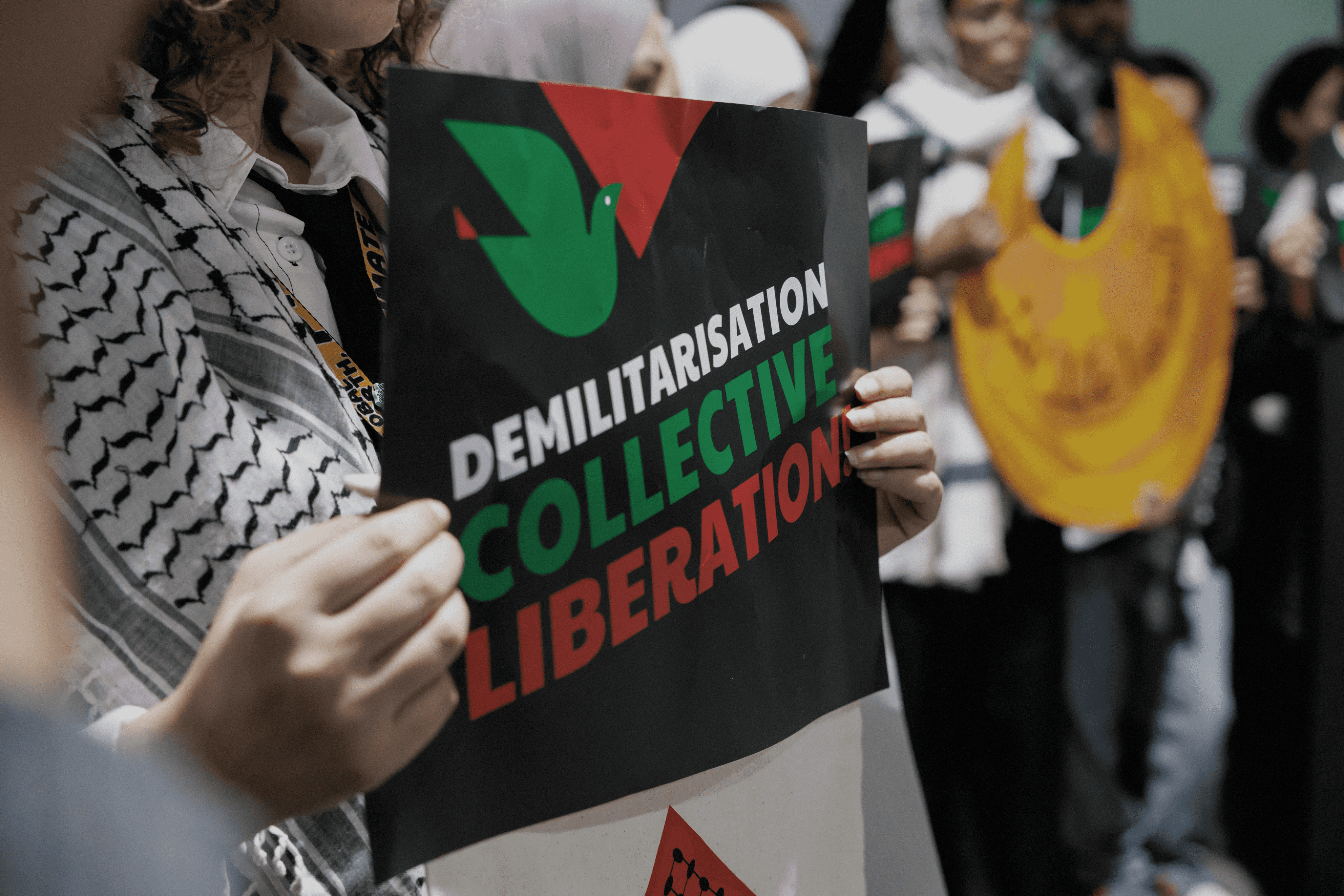Global Advocacy
We confront silence with strategy.
From multilateral climate and environmental convenings to international mobilizations, PICS ensures Palestine is not sidelined. We intervene in global spaces where climate and colonialism collide, bringing analysis, demands, and political clarity to shape international discourse on justice and accountability. We seek to work in partnership and solidarity with organisations on the frontlines, fighting shared struggles of liberation.





.svg)
.svg)